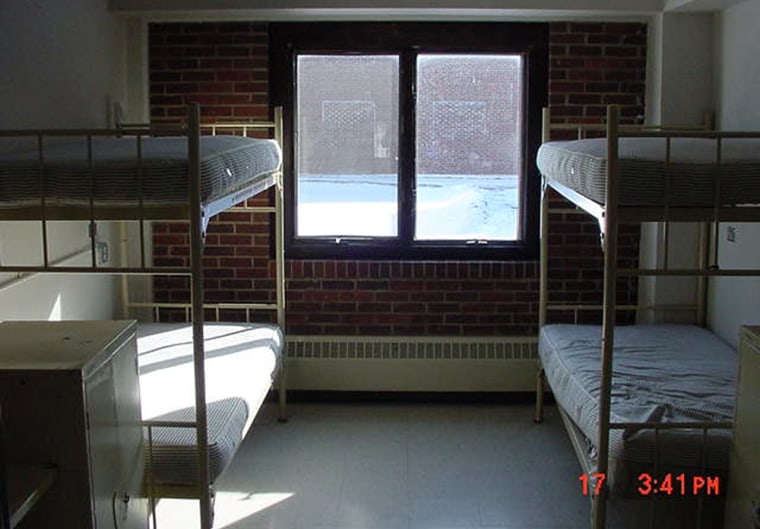The former Enron chief who once resided in a $4.7 million, Mediterranean-style mansion in Houston’s toniest neighborhood will get a bit of a reprieve before he must report to prison, where he would likely have three roommates in a converted college dorm room.
Jeffrey Skilling, the former chief executive officer of Enron, was scheduled to report Tuesday to the Federal Correctional Institute here to serve his 24-year sentence on fraud and conspiracy charges.
But on Monday, the 5th U.S. Circuit Court of Appeals delayed his report date. According to a docket entry on the court’s Web site, the delay was “solely to allow this court to give careful consideration to the request for bail pending appeal.” According to the entry, a new report date would be set pending further court order.
Skilling’s defense attorney did not immediately return a message seeking comment on the delay.
The low-security prison, which sits on the city limits of this town of 8,400 people 75 miles south of Minneapolis, has a low profile in the federal penal system and is little known even to most Minnesotans. While the surroundings will pale in comparison to Skilling’s former high-flying lifestyle, former staff and inmates at the prison said there are worse places to land.
“For me, it wasn’t the worst experience,” said the Rev. Chuck Butler, a retired Methodist minister from nearby Rochester. Butler spent three months in the prison in 2000 after several trespassing arrests for protesting on Georgia’s Fort Benning Army base.
“The food they served was actually quite good. It used to be a university extension site, so you’d walk into certain parts and immediately feel like you were on a college campus,” he said.
The site was a branch campus of the University of Minnesota until 1992, when it was shuttered in a round of cost cutbacks. City officials hoping to save much-needed jobs approached federal authorities and suggested it as a prison, and today the 80-acre facility houses 1,070 federal inmates.
Most inmates were lower-level players in the drug trade, according to Felicia Ponce, a spokeswoman for the Federal Bureau of Prisons. She said Skilling likely won’t be among many other white-collar criminals.
The prison retains the low-slung brick buildings common to state college campuses, but from outside they’re obscured by two metal fences topped with coils of barbed wire. Guards in white pickup trucks slowly circle the perimeter.
The prison abuts farm fields in one direction. On the other side, dozens of private homes and several apartment buildings sit just yards away from the perimeter fences.
Inside, there are no bars on the doors or windows, said Jim Tippy, the warden who opened the prison in 1995. He retired in 1998.
“We took dormitories that had two college students per room, and put four inmates into each of them,” Tippy said. “It’s a tight fit. But it is a prison.”
Inmates have access to exercise facilities including a basketball court, running track and a ping-pong table. Most inmates are required to work in prison labor jobs such as food service, plumbing and painting, where they earn 12 to 40 cents an hour. About 200 inmates work in a prison industries sewing operation where they make exercise shorts for the military.
Still, Butler said, like any prison it was a highly regimented and controlled existence.
“You had to follow the routines very carefully,” Butler said. “When I was there a lot of people from my church were visiting me, and I was called in and told, ’You have too many people coming in. You can see your friends when you get out.”’
Skilling planned to undergo alcohol and mental health counseling at Waseca, successful completion of which could shave a year off his sentence. He would also be eligible to earn 54 days a year off his sentence for good behavior.
While Skilling wouldn’t face the daily extremes that face convicts in supermax-style federal prisons, it won’t be a comfortable life, Tippy said.
“I worked in the federal system for 31 years at all levels of security, and to me jail is jail,” Tippy said. “They tell you what time you get up in the morning and they tell you what time to eat breakfast, and they tell you what job to do and they tell you what time to go to bed at night.
“I never saw anyplace so nice that I would have wanted to spend even a night there,” he said.
